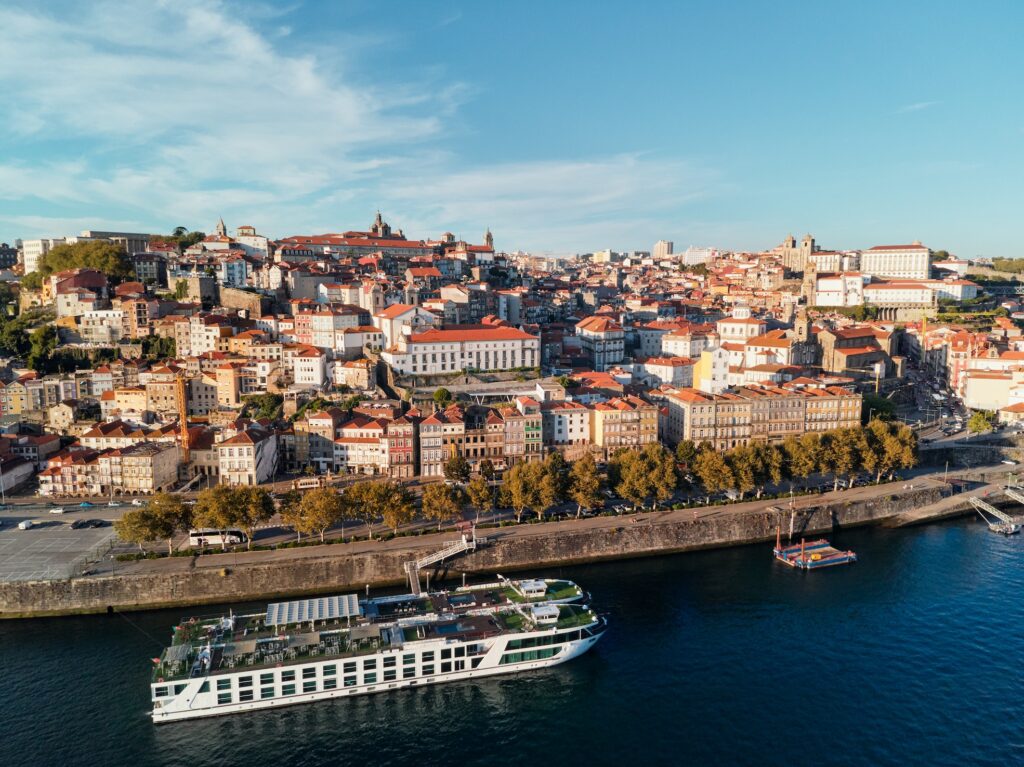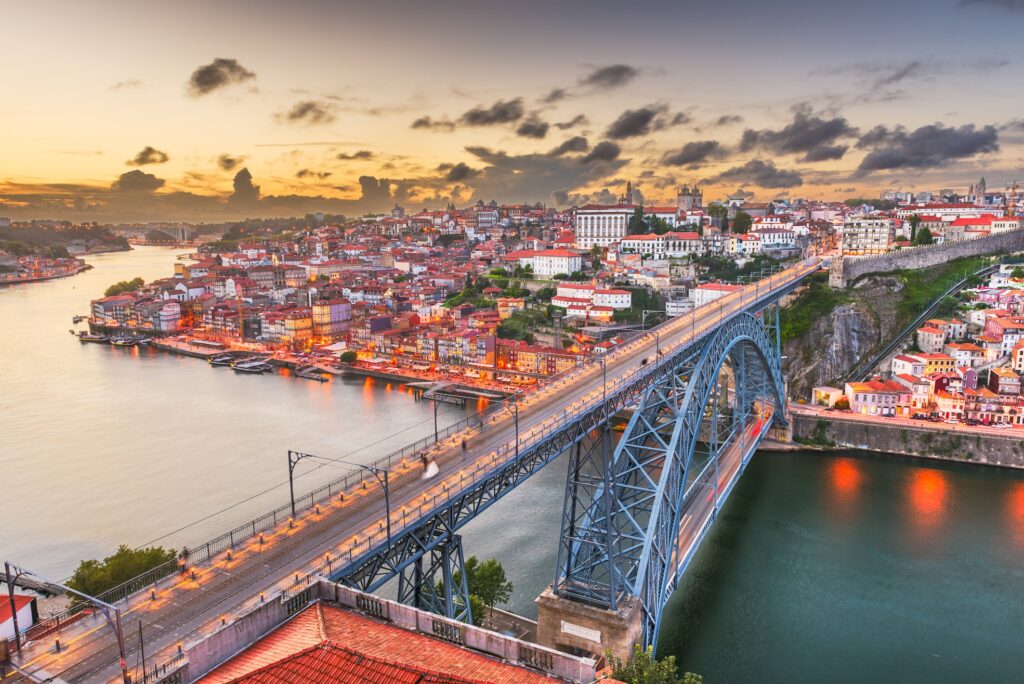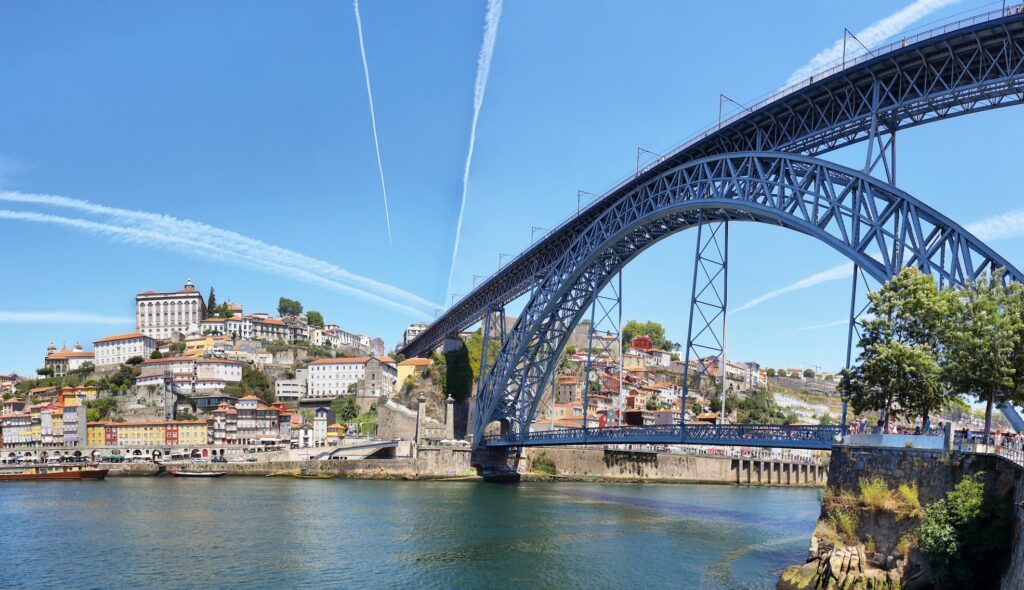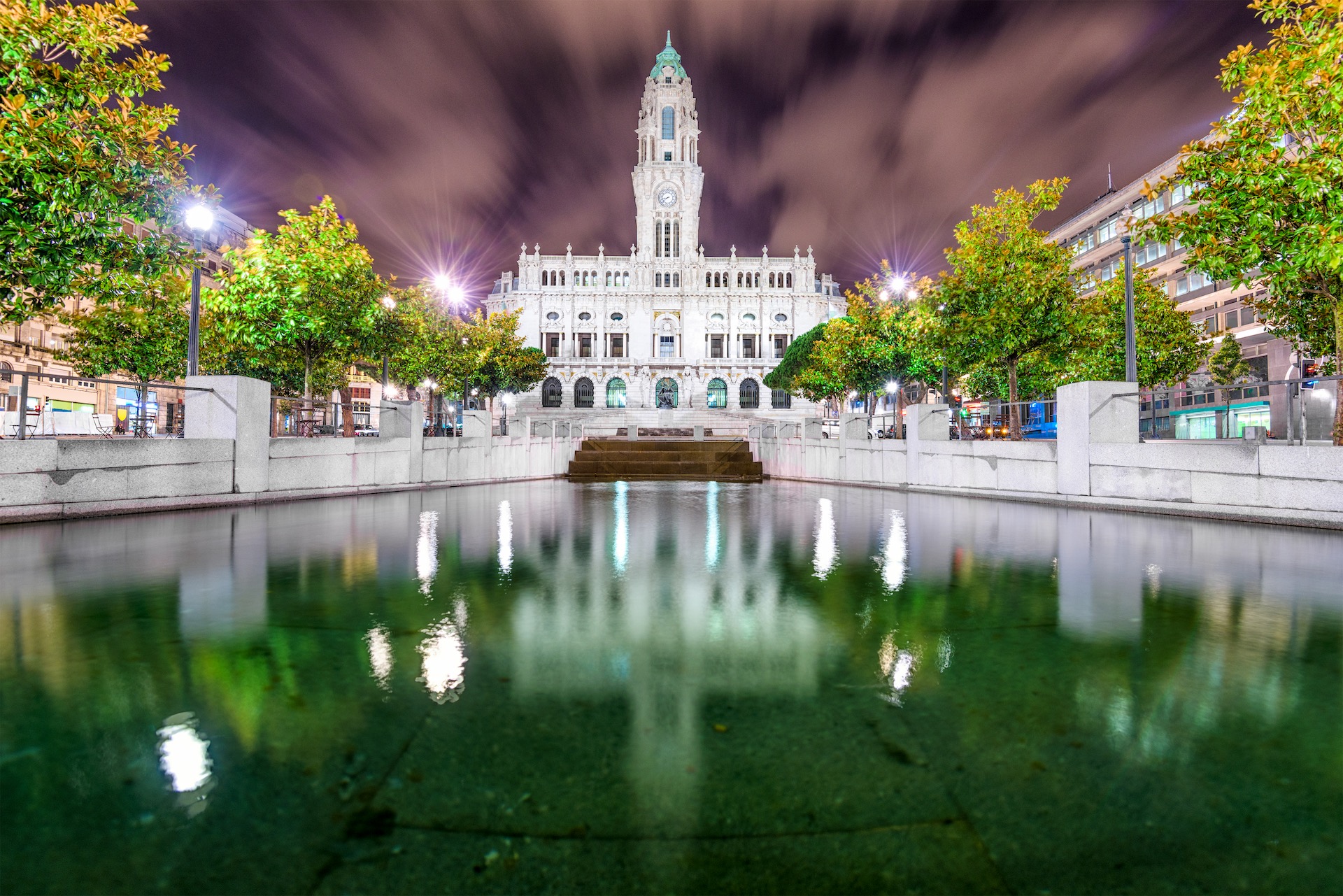Are you tired of the high cost of living in Western Europe and the USA? Look no further than Portugal! With its stunning beaches, rich history, and delicious cuisine, the cost of living in Portugal is very affordable; that will make your wallet smile. So what actually is the cost of living in Portugal?
According to International Living, a couple can live comfortably on $2,500 to $3,000 a month outside of major Western European countries and cities, but what about housing costs and other expenses? Let’s dive into the details and see why Portugal is becoming a top destination for expats looking to save money without sacrificing their quality of life.
Cost Of Living In Portugal
There are so many cost of living expenses to consider when moving to other Western European Countries (like Spain or Portugal). Some examples of common cost of living examples are the following:
- Average monthly utility costs
- Property prices
- Rent prices
- Location compared to the city center
- Estimated monthly costs for basic cost of living purposes
- If there are public or private schools within an affordable cost range (for parents/guardians)
- If private insurance or health insurance plans are required within European countries
- If there are affordable taxies or other forms of public transport to the city center
- Any other relative monthly costs (even if it just to have a meal at an inexpensive restaurant in the city center)

Housing Cost of living in Portugal
Housing costs in Portugal are incredibly affordable compared to other countries in Western Europe.
Rental costs depend on the region; in cities like Lisbon and Algarve, renting a city apartment can cost anywhere from €650-€2,500 per month. On average, apartments cost €860 per month in Lisbon, while outside of major cities, prices are generally lower – two-bedroom apartments can be as low as €500 per month. Unfurnished apartments tend to be cheaper than furnished ones when renting.
For expats looking to buy a home, Portugal has some of the lowest property taxes in Europe. The flat rate is only 0.8% of the purchase price – much lower than other countries like France (11%) or Spain (3-7%). This makes it an attractive option for those looking to invest in a property.
The average price varies depending on the area of interest. In Lisbon, the average house is €227,751, with prices per square meter ranging from €4,547 in city centres to €2,653 on the outskirts. Other major cities like Cascais and Faro tend to have higher fees, between €2,000-€3,000 per square meter.
If you’re looking for something more affordable outside of urban areas, then look no further than Figueira de Castelo Rodrigo – here, you can get a median price of only €161 per square meter.
By buying a home, you can take advantage of Portugal’s Residency by Investment or the Golden Visa program. This program offers non-EU nationals the opportunity to obtain a five-year residency permit by investing in Portugal.
To be eligible for this program, you must make a significant investment in Portugal. This can include purchasing real estate with a minimum value of €280,000 or investing in a Portuguese business. Once your investment is made, you’ll be granted a temporary residency permit that’s valid for one year. After that, you can renew your permit for two more years and then another two years after that.
One of the biggest benefits of the Golden Visa program is that it allows you to live and work in Portugal while enjoying visa-free travel throughout the EU Schengen zone. You’ll also have access to Portugal’s excellent healthcare system and education system.

Porto is Portugal’s second-largest city and offers a range of rental options. Apartments in the city centre tend to be pricier than those on the outskirts, with monthly rentals ranging from €650-€1,500 depending on size and amenities.
Prices per square meter can cost up to €3,000. Algarve is known for its stunning beaches and mild climate – rental costs are generally higher here due to increased demand, with apartments in cities like Faro costing around €850-€2,000 per month.
Another great option to consider is Castelo Branco. Castelo Branco is a small town located in the eastern part of Portugal and offers some great deals on property.
| Location | Rental Costs (Monthly) | Price per Square Meter |
|---|---|---|
| Lisbon | €650-€2,500 | €2,653 (outskirts)
€4,547 (city centre) |
| Porto | €650-€1,500 | Up to €3,000 |
| Algarve (Faro) | €850-€2,000 | €2,000-€3,000 |
| Other Cities (Cascais, Faro) | €600 – €1,200 | €2,000-€3,000 |
| Outside Major Cities | €500+ | €161+ |
Source: Expatica
Note: Rental costs and house prices vary depending on the size and furnishings of the property.
When it comes to short-term rentals, there are a number of websites, such as Airbnb, Homelike, Spotahome, and Uniplaces, which offer great deals for those looking for a place to stay.
Finally, Portugal’s housing costs are generally lower than other Western European countries. While rental costs in Lisbon and Algarve can range from €650-€2,500 per month for a city apartment, outside of major cities, prices are generally lower, with two-bedroom apartments costing as low as €500 per month.
Food Cost of Living in Portugal
If you’re planning to move to Portugal, the cost of food is certainly something you’ll want to consider. Fortunately, Portugal is an excellent place for budget-savvy foodies, as it boasts delicious and affordable cuisine. According to Numbeo, a website that tracks the cost of living in different countries, an inexpensive meal at a restaurant will set you back around €9 on average.
For something more luxurious, like a three-course dinner for two people at a mid-range establishment, expect to pay about €40. Even if fast food’s more your style, a combo meal from McDonald’s or other similar chains will only cost approximately €7.
It’s important to note that the actual cost of food in Portugal may vary depending on where you live and shop for groceries. To save money, seek out local markets or supermarkets rather than dining out every day. Devour Tours suggests setting aside about €25 per day for food, which could include €3 for breakfast, €8 for lunch and €14 for dinner (with an additional €2 left over for snacks)
Of course, if you wish to splurge occasionally or sample all the regional specialties available, your budget may need to be higher.
Grocery expenses in Portugal are generally lower than in other parts of Europe. Milk costs around 3.48€ (1 gallon), while a loaf of white bread is 1.27€ (1 lb). Rice, eggs, local cheese, and chicken fillets cost around 0.59€, 2.70€, 4.23 € and 3.08 € respectively, for 1 lb each. Beef round or equivalent back leg red meat costs 4.79 € per pound while apples, bananas, and oranges cost 0.88 €, 058 € and 070 € per pound, respectively.
Potatoes, onions, and tomatoes are also available at low prices of 0.58 €, 0.56 €, and 0.92 €, respectively, per pound. Lettuce costs 1.26€ (1 head), while water and imported beer cost around 0.77 € (1.5-litre bottle) and 1.99 € (12 oz small bottle). A mid-range bottle of wine can be bought for 4.50€ while a pack of 20 Marlboro cigarettes is 5.40€.
| Grocery Item | Price (€) | Price Range (€) |
|---|---|---|
| Milk (regular), (1 gallon) | 3.48 | 2.65-4.16 |
| Loaf of Fresh White Bread (1 lb) | 1.27 | 0.74-2.27 |
| Rice (white), (1 lb) | 0.59 | 0.45-0.91 |
| Eggs (regular) (12) | 2.7 | 1.60-3.60 |
| Local Cheese (1 lb) | 4.23 | 2.27-6.80 |
| Chicken Fillets (1 lb) | 3.08 | 1.81-4.08 |
| Beef Round (1 lb) (or Equivalent Back Leg Red Meat) | 4.79 | 2.72-9.03 |
| Apples (1 lb) | 0.88 | 0.50-1.21 |
| Banana (1 lb) | 0.58 | 0.45-1.13 |
| Oranges (1 lb) | 0.7 | 0.40-1.22 |
| Tomato (1 lb) | 0.92 | 0.45-1.27 |
| Potato (1 lb) | 0.58 | 0.27-0.91 |
| Onion (1 lb) | 0.56 | 0.39-0.91 |
| Lettuce (1 head) | 1.26 | 0.50-2.00 |
| Water (1.5-litre bottle) | 0.77 | 0.26-1.80 |
| Bottle of Wine (Mid-Range) | 4.5 | 3.00-10.00 |
| Domestic Beer (0.5-litre bottle) | 1.25 | 0.70-2.00 |
| Imported Beer (12 oz small bottle) | 1.99 | 0.90-3.14 |
| Cigarettes 20 Pack (Marlboro) | 5.4 | 5.00-7.00 |
Source: Numbeo
Overall, when compared with other European countries, the cost of food in Portugal is quite reasonable. Compared to the United States, Portugal generally has lower food prices. According to Numbeo, a fast food combo meal in the US costs around $8 on average, which is around €6.80. A meal for two at a mid-range restaurant in the US is around $50, or €42. Grocery prices also tend to be higher in the US than in Portugal. For example, a gallon of milk in the US costs around €2.80, while a loaf of bread is around €1.70.
These prices may vary depending on where you live in each country, but overall, Portugal is a more affordable place to eat and shop for groceries. However, keep in mind that salaries in the US tend to be higher than in Portugal, so it’s important to consider the cost of living relative to your income.
Whether you choose to cook in your own kitchen or enjoy meals out at restaurants, there are plenty of delicious options available without breaking the bank.
Transportation Cost
In Lisbon, one-way tickets for either the bus or metro typically cost around €1.50-€2, while a daily pass can be purchased for approximately €6. If you plan on using public transport regularly, then it may be beneficial to purchase a Viva Viagem card which grants users reduced fares across all modes of transport within the city. In Porto, the prices are slightly lower, with one-way tickets coming in at €1.25 and a day pass costing €4.15.
Those looking to venture outside of either city should consider regional trains and buses as they often provide more economical options than their long-distance counterparts. For instance, travelling from Lisbon to Porto by train could cost around €30-€40, whereas taking a regional train from Lisbon to Sintra only costs approximately €2 – making it much more budget-friendly for those on a tighter schedule or who have limited funds available for the journey.

Utility Bills
The cost of utilities in Portugal can vary depending on the size of the dwelling and the number of occupants. A small apartment occupied by one person can expect to pay around €94 to €184 per month for basic utilities, which include electricity, heating, cooling, water, and garbage disposal.
Meanwhile, a larger dwelling occupied by a couple can expect to pay between €128 and €184 per month for the same utilities. If you’re planning to add high-speed internet, which is often fibre, you can expect to pay an additional €30 to €62 per month.
Healthcare
Portugal has a well-established healthcare system that offers both public and private healthcare services. The country spends around 9.1% of its GDP on healthcare, making it the 12th biggest spender out of EU/EFTA countries. The public healthcare system is funded by taxes and is available to all residents, including foreigners with valid residence permits.
The cost of basic healthcare services in Portugal’s public sector is reasonable. For instance, seeing a general practitioner usually costs less than €60 ($70). However, some specialised treatments may have long waiting times due to high demand.
Private healthcare in Portugal can be expensive, but it provides faster access to medical care and more personalised attention. The cost of private health insurance varies between hundreds to thousands of euros per month, with an average of €400 ($470).
Here are some sample medical care costs in Portugal:
- Doctor’s visit: €50 to €75 ($60 to $90)
- Dental cleaning: €50 to €75 ($60 to $90)
- Specialist consultation: €80 to €120 ($95 to $140)
- MRI scan: €150 to €300 ($175 to $350)
- Hospitalization (per day): €200 to €400 ($235 to $470)
It’s worth noting that these prices are estimates and may vary depending on the location and the provider.
Sample Monthly Budget of the Cost of Living in Portugal
Here’s a sample budget for you to work on. Note that these costs are estimates and may vary depending on your location, lifestyle, and other factors.
| Expense | Cost |
|---|---|
| Housing (Rent or Mortgage Payment) | €500-€2,500 |
| Utilities (Electricity, Gas, Water, Internet) | €100-€200 |
| Food | €25 per day (€750 per month) |
| Transportation | €40-€80 |
| Entertainment | €50-€100 |
| Health Insurance | €50-€150 |
| Total | €1,465-€3,780 |
Bottom Line: Cost of Living in Portugal
Moving to Portugal can be a great experience, whether you are seeking a change of pace or a new adventure. With its stunning scenery, rich history and culture, and friendly people, Portugal has a lot to offer. Whether you are interested in living in a city or a small town, there are plenty of options to choose from.
However, before making a move, it’s important to do your research and plan ahead. Consider factors such as the cost of living, language barriers, and visa requirements. It’s also important to make sure you have a solid financial plan in place before moving to Portugal.
If you plan on moving to Portugal, it’s recommended to learn some Portuguese and embrace the culture. This will not only make your transition easier, but it will also help you to immerse yourself in the Portuguese way of life fully.
Overall, if you are looking for a country that offers beautiful weather, delicious food, friendly people, and a relaxed way of life, Portugal is definitely worth considering.
Other Sources:
- https://www.expatica.com/pt/healthcare/healthcare-basics/healthcare-in-portugal-106770/
- https://www.schengenvisainfo.com/europe-health-insurance/portugal-health-insurance/
- https://www.internationalinsurance.com/health/europe/portugal.php





